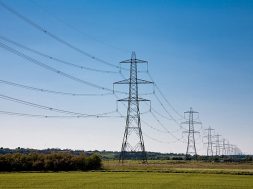
- Proposed power sector council will aim to solve issues stuck due to differences between Union and state govts
- With power being on the concurrent list of the Constitution, many sectoral issues face hurdles due to differences between the Union and state governments
NEW DELHI: The power ministry has proposed a “power sector council” comprising the political executive as well as the energy bureaucracy to tackle issues between the Union and state governments as part of the ministry’s 100-day action plan for the second term of the Narendra Modi government.
With power being on the concurrent list of the Constitution, many sectoral issues face hurdles due to differences between the Union and state governments. The council will help the Centre and states work on a common agenda and ensure round-the-clock power to all.
This comes in the backdrop of the Centre preparing a road map for the power sector. The ‘Vision Document for Power Sector for the next Five Years’ will also focus on electricity generation utilities including from renewable energy sources, transmission including green energy corridor and green energy integration, and electricity distribution companies (discoms) including distribution franchisees.
According to information reviewed by Mint, such a council can be formed through an executive order and “the council would work in the spirit of collaborative and cooperative federalism, whereby various federal and state entities in the Indian power sector can work on common narratives of energy sector growth on a common agenda, while retaining the concurrent nature of power sector as enshrined in the Constitution of India”.
To be sure, the decision-making of the so-called power sector council would preclude legislative and regulatory domains of the Centre and states.
Mint had reported about the power sector council on 12 June.
The Modi administration’s plan to provide uninterrupted power supply to households in its second term was articulated by power minister Raj Kumar Singh after he assumed office. With electricity being on the concurrent list, it is for states to ensure reliable and affordable electricity to consumers.
It is a tough task given as of September 2015, the total debt of all state-owned discoms was around ₹2.45 trillion, with ₹0.8 trillion serviced by the states. Also, annual discom losses in FY16, FY17 and FY18 were funded through borrowings. Non-performing assets in power generation make up around 5.9% of the banking sector’s total outstanding advances of ₹4.73 trillion, according to the Economic Survey presented in August 2018.
The proposed council will be headed by the Union power minister and have the Union finance minister and power ministers of all states as members. It will be assisted by a standing committee headed by the Union power secretary, with finance secretaries, principal secretaries (energy) and principal secretaries (finance) of all states as its members.
According to the proposal, the standing committee would recommend cases to be brought before the council for decision making and take the assistance of the joint working groups for framing the problem statements and suggesting possible solutions. Decisions would be taken through voting with one vote each for the Centre and the states.
“The vote by the Centre (minister of power) would have a weightage of one-third of the overall votes cast, and the votes of all the state governments taken together shall have a weightage of two-thirds of the total votes cast in that meeting. For a decision of the council to be designated as an agenda for the country shall be taken at the power sector council meeting, the same should have a majority of not less than three-fourths of the weighted votes of the members present and voting,” according to the proposal.
Queries emailed to a power ministry spokesperson on Monday remained unanswered.
According to the proposal, the joint working groups (JWGs) on various issues will be coordinated by a joint secretary in the Union power ministry. These JWGs will help the standing committee and the council in taking appropriate decisions and would also have industry, academia and think-tanks as members.
This also comes at a time when India has an ambitious target to set up 500 gigawatts (GW) of renewable energy capacity by 2030.This would require active cooperation of the state governments with the Centre. India currently has an installed renewable energy capacity of around 80 GW.
The proposal also comes in the backdrop of the ongoing crisis in discoms due to their poor financial health, which has led to delayed payment to generation utilities.
















